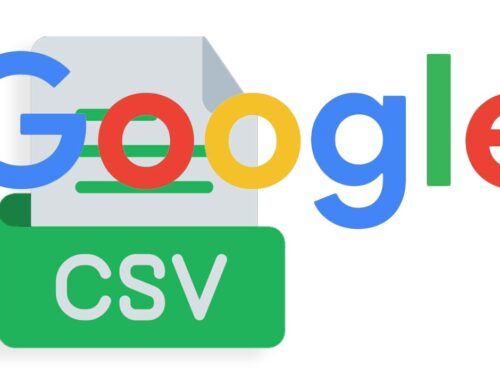In the era of semantic web and machine learning, the landscape of search engine optimization (SEO) is drastically changing. One area that has come to the forefront in this transformation is the concept of Google Entities. In this article, we will delve deep into what Google Entities are, how they function, and what benefits they offer to SEO professionals and website owners.
Understanding Google Entities is a fundamental aspect of harnessing the power of modern SEO strategies. We will discuss how these Entities can impact your digital marketing efforts, and provide insights into how you can leverage them for your advantage. This article will not only shed light on what Google Entities mean in the context of SEO but will also provide an in-depth understanding of the technical aspects and practical implications involved.
This article serves as a guide on Google Entities, designed to empower readers with actionable knowledge that can be applied to enhance their digital marketing initiatives.
Table of Contents
- What are Google Entities?
- How do Google Entities work?
- Relevance of Google Entities to SEO
- Benefits of Google Entities
- Practical strategies to leverage Google Entities for SEO
- Frequently Asked Questions
- Final Thoughts
- Sources
1. What are Google Entities?
Google Entities are distinct, individual concepts or ‘things’ that exist in the Google Knowledge Graph, an expansive, dynamic network of interconnected information which aims to understand facts about people, places, and things, and how these entities relate to one another. As Google’s algorithms evolve and the search engine shifts its focus from keyword-centric to context-centric searches, Entities have emerged as a crucial component of this semantic understanding.
The concept of Entities is not restricted to just tangible or concrete elements. They can be people, such as ‘Elon Musk’ or ‘Queen Elizabeth II’; places, like ‘New York City’ or ‘Eiffel Tower’; organizations, such as ‘Google’ or ‘United Nations’; or even intangible and abstract concepts, like ‘Democracy’ or ‘Climate Change’. Each of these Entities is assigned a unique machine ID and contains specific attributes and relationships that contribute to the broader understanding of that Entity.
For example, the Entity ‘Barack Obama’ would have attributes like ‘birth date’, ‘education’, ‘profession’, and ‘nationality’, and would have relationships with other entities such as ‘Michelle Obama’ (spouse), ‘United States’ (citizenship), and ‘Harvard Law School’ (education).
Entities, represented as nodes in the Knowledge Graph, are interlinked based on their properties and relationships, with the connecting edges depicting these associations. This interconnected web of knowledge provides a structured and sophisticated understanding of the world, far beyond the capability of keyword-based searches.
The recognition and understanding of these Entities by Google allows it to provide more accurate and contextually relevant search results. It enables the search engine to comprehend the intent behind a search query and provide results that are most relevant to that intent, thus significantly enhancing the user’s search experience. Entities are at the heart of Google’s quest to make search results more accurate, relevant, and user-centric.
2. How do Google Entities work?
At the heart of Google’s understanding of Entities is the Google Knowledge Graph, a massive network of facts about people, places, things, and their interconnections. Google Entities work by categorizing and linking information from across the internet into this Knowledge Graph.
When Google crawls a webpage, its sophisticated algorithms aim to identify the Entities on that page and the relationships between them. This process is more complex than traditional keyword identification because it requires the system to understand the context of the text, identify Entities, and interpret their relationships.
Let’s illustrate this with an example: If a webpage talks about the novel ‘Pride and Prejudice’ written by ‘Jane Austen’, Google recognizes ‘Pride and Prejudice’ and ‘Jane Austen’ as Entities. Additionally, it identifies the relationship between these two Entities — ‘Pride and Prejudice’ was written by ‘Jane Austen’.
These identified Entities and relationships are stored in the Knowledge Graph. The Entity ‘Jane Austen’ will have an edge or link connecting it to the Entity ‘Pride and Prejudice’, establishing the authorship relationship. Similarly, other relationships, like characters in the book or its publication date, will be linked to the ‘Pride and Prejudice’ Entity.
Moreover, Google’s algorithms continuously learn and update the Knowledge Graph with new Entities and relationships. It uses a variety of sources to gather information, including the content of webpages, user behavior, public databases, and more.
As a result, when a user enters a search query, Google can draw from this vast Knowledge Graph to provide not only relevant results but also rich information about related Entities. For instance, a search for ‘Jane Austen’ might reveal information about her works, significant life events, and related authors, enhancing the user’s search experience significantly.
Understanding this dynamic can be vital for SEO professionals, as focusing on Entity relationships in their content could potentially improve their visibility and rankings in Google’s search results.
3. Relevance of Google Entities to SEO
With Google’s shift towards semantic search, understanding Google Entities is becoming increasingly important for SEO. Websites that align with Google’s semantic understanding and entity-based indexing are likely to rank higher.
In the realm of SEO, Google Entities can be harnessed for:
- Keyword research and content creation: By understanding related entities, you can create more comprehensive and contextually relevant content.
- On-page SEO: Using structured data (Schema.org) can help Google identify entities on your page, potentially improving your search ranking.
- Brand recognition: Establishing your brand as an Entity can enhance brand visibility and recognition in search results.
Google’s shift towards an entity-centric model of understanding the web has deep implications for Search Engine Optimization (SEO). With Google moving away from pure keyword-based indexing to understanding context and semantics, SEO practices need to evolve and adapt to stay effective. Here are a few ways in which Google Entities are relevant to SEO:
Understanding User Intent: Google uses Entities to better understand user intent. It’s no longer just about what keywords are in the search query, but what the user is looking for – their intent. By identifying and understanding the Entities in a search query, Google can provide more contextually accurate and meaningful results. For SEO professionals, this means focusing on user intent, understanding the Entities relevant to their business, and building content around them.
Improved Content Relevance and Quality: Google Entities offer a way to ensure your content is relevant and of high quality. By focusing on Entities and their relationships, you can create content that provides a comprehensive view of a topic. For instance, if you are writing about ‘climate change’, you can also discuss related entities like ‘greenhouse gases’, ‘global warming’, and ‘renewable energy’. This will not only improve your content’s relevance but also its perceived quality in the eyes of Google’s algorithms.
Enhanced Local SEO: For local businesses, Google Entities can be a powerful tool for enhancing local SEO. By properly optimizing your Google My Business listing and ensuring your business is recognized as an Entity, you can increase your visibility in local search results.
Structured Data and Schema Markup: By using structured data and schema markup, you can help Google identify the Entities on your webpages. This can lead to rich results, which are more eye-catching than regular listings, potentially boosting click-through rates.
In essence, Google Entities are bringing a paradigm shift in SEO, where the focus is shifting from keywords to a more contextually relevant and semantic approach. Adapting to this change is key to succeeding in the ever-evolving digital landscape.
4. Benefits of Google Entities
The shift towards entity-centric search has brought forth numerous benefits for both users and website owners. Here are some of the key benefits of Google Entities:
Improved Search Rankings: Google’s shift towards entity-based indexing means that webpages that are easily understandable by Google, i.e., those where entities and their relationships are clearly defined, are likely to rank higher in search results. Understanding and leveraging Google Entities can therefore lead to improved search rankings.
Enhanced User Experience: Entities allow for a more nuanced and detailed understanding of the context and intent of a search query. This leads to more accurate, detailed, and helpful search results, significantly enhancing the user experience. By focusing on Entities, website owners can create content that is more relevant and useful to their audience, which can improve user engagement and conversion rates.
Greater Visibility: Entities often appear in rich snippets, knowledge panels, and other enhanced search result formats. These formats provide additional information directly on the search results page, improving visibility and often leading to higher click-through rates. By ensuring that Google can easily identify and understand the entities on your webpages, you increase your chances of appearing in these enhanced results.
Better Brand Recognition: If your brand is recognized as an entity by Google, it can appear in the Knowledge Graph, which can significantly enhance brand visibility and recognition. It can also lead to improved trust and credibility, as appearance in the Knowledge Graph is often seen as an endorsement by Google.
In conclusion, understanding and leveraging Google Entities can lead to improved search rankings, enhanced user experience, greater visibility, and better brand recognition. These benefits make Google Entities an essential component of modern SEO strategies.
5. Practical strategies to leverage Google Entities for SEO
As Google continues to evolve towards a more entity-centric search model, understanding and leveraging Google Entities is becoming increasingly essential for effective SEO. Here are some practical strategies to leverage Google Entities for SEO:
Use Structured Data: Structured data, also known as Schema markup, is a type of code that helps search engines understand the content of your pages. Implementing structured data markup on your website can help Google identify the Entities on your pages and understand their properties and relationships. This could potentially improve your visibility in search results and increase the chances of appearing in rich results.
Create Entity-Centric Content: Rather than focusing solely on keywords, consider creating content that focuses on Entities and their relationships. Understand the Entities that are relevant to your business or industry, and create comprehensive, high-quality content around them. For instance, if you are in the fitness industry, you could create content around entities like ‘cardiovascular exercise’, ‘strength training’, ‘yoga’, and how they relate to ‘fitness’.
Establish Your Brand as an Entity: One of the ultimate goals of SEO should be to establish your brand as an Entity. This could significantly improve your visibility and recognition in search results. You can do this by creating a Google My Business listing, getting mentioned in credible publications, ensuring consistent NAP (Name, Address, Phone number) across your web presence, and increasing your brand’s online presence and recognition.
Interlink Relevant Content: Interlinking relevant content on your website helps Google understand the relationships between different Entities. If you have multiple articles about related topics, make sure to interlink them in a way that makes sense. This will not only help Google understand the content better, but it will also provide a better user experience.
Incorporating these strategies into your SEO efforts can help you harness the power of Google Entities, potentially leading to improved search rankings, enhanced visibility, and increased traffic to your website.
Frequently Asked Questions
Final Thoughts
As Google evolves, the focus is shifting from keyword-centric to entity-centric search. Understanding and leveraging Google Entities is crucial for modern SEO strategies. Entities offer numerous benefits, from improved search rankings and enhanced user experiences to greater visibility and brand recognition. By implementing practical strategies like using structured data, creating entity-centric content, and establishing your brand as an entity, you can harness the power of Google Entities for your SEO efforts.
Sources
- “Introduction to Structured Data” – Google Developers
- “The Google Knowledge Graph” – Google Inside Search
- “How Google’s Knowledge Graph Works: SEO Implications” – Search Engine Journal
- “Understanding entities and the impact on SEO” – Search Engine Land
- “The Role of Google Entities in SEO” – SEMrush











Leave A Comment